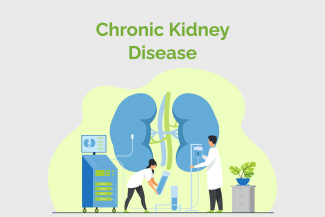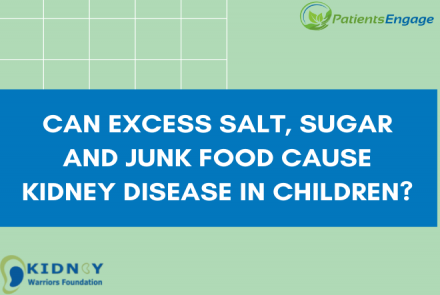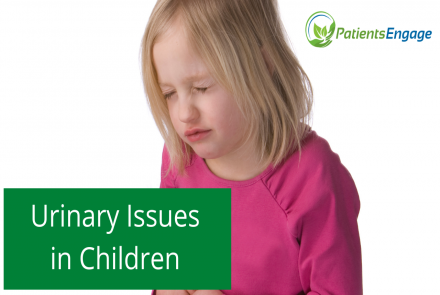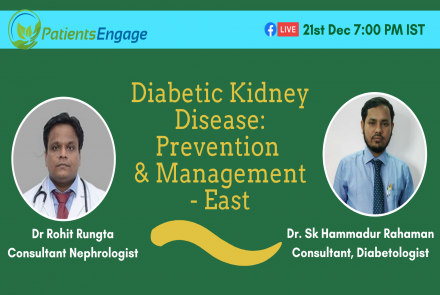Chronic kidney disease (CKD) is a worldwide public health problem.
lthough the exact reasons for the growth of CKD are unknown, changes in the demographics of the population, differences in disease burden among racial groups, and under-recognition of earlier stages of CKD and of risk factors for CKD may partially explain this growth
It is also known as Chronic Renal Disease.
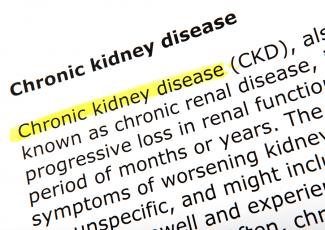
What causes Chronic Kidney Disease (CKD)
- Diabetes mellitus (an increase in blood sugar level) raises the risk of developing CKD.
- Hypertension (high blood pressure), if poorly controlled, can lead to CKD. CKD can also cause high blood pressure. Diabetes and hypertension together are responsible for two-thirds of cases of CKD.
- Glomerulonephritis, a group of diseases that cause inflammation and damage to the kidney's filtering units. These disorders are the third most common type of kidney disease. If left unmanaged, it can cause kidney failure.
Glomerular diseases are classified into two broad groups:
Primary Glomerular disease in which the glomeruli are the predominant site of involvement causing problems in filtration rate, eg, nephritis.
Secondary Glomerular disease includes certain systemic and hereditary diseases that secondarily affect the glomeruli resulting in hindrance in the filtration rate, e.g. diabetic nephropathy and lupus nephritis.
- Ageing, as there is a decline in kidney function with age. But CKD does not progress beyond moderate stage unless there is another underlying problem, like a diabetic kidney.
- Autoimmune disorders (such as systemic lupus erythematosus and scleroderma) that damage the kidney.
- Vascular (Large vessel) A decrease in the diameter of the renal arteries resulting in the restriction of blood flow to the kidneys. This leads to impaired kidney function/renal failure and high blood pressure referred to as renovascular hypertension.
- Ischemic Nephropathy (small vessel disease) Inadequate blood flow / hypoperfusion manifests as progressive loss of kidney function and kidney atrophy/shrinkage.
- Hemolytic-Uremic Syndrome occurs when an infection in the digestive system produces toxic substances that lead to abnormal premature destruction of red blood cells, start clogging the filtering system in the kidneys leading to life-threatening kidney failure.
- Vasculitis or inflammation of the blood vessels.
- Drug and toxic chemical induced chronic tubulointestitial nephritis or inflammation of the kidney tubules and the tissues surrounding them.
- Injury/trauma
- Birth defects of kidney, such as polycystic kidney disease, which causes large cysts to form in the kidneys and damage the surrounding tissue
- Obstructive conditions, such as kidney stones and diseases of the prostrate
- Infections (such as pin worm infection)
Are you at risk of developing chronic kidney disease
The factors that can put people at risk of chronic kidney disease include:
- Age (above 60 years age)
- Diabetes
- Family history of kidney disease
- Cardiovascular disease
- Hypertension
- Obesity
- Smoking
Changed
20/Jul/2017
Condition

